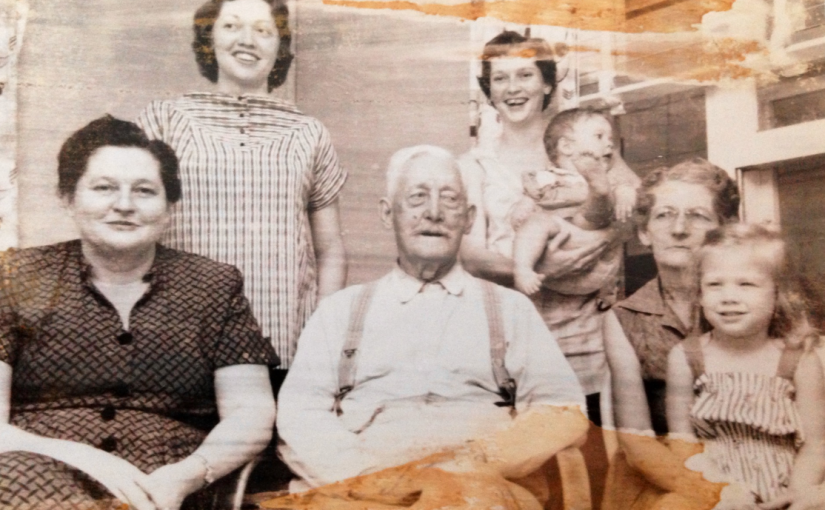If my father heard me tell you that his mother died twice, he’d rock back on his heels, dip his chin so the tip of his cotton swab beard glanced off his sternum, and declare that she died all of three times. He would not elaborate. As you can imagine, these stories are not pleasant to recall; he rarely brings his mother up in conversation. Growing up, I don’t remember ever hearing her name.
Our differing sums can be attributed to absence. I forget about the first time my grandmother died because it happened before I was born. Unfortunately, all of this means you must rely on me to tell you stories of which I only hold shards. I will do my best.
In 1951 my father was 7 years old and his brother and sister, the twins, were 6. They were sitting or playing or napping in a house across town from the courtroom in which my grandparents slouched. A stoic judge restated the charges of The State of Michigan v. James and Romine, which I imagine includes public nuisance and several counts of child neglect. The case ended with the word guilty and three swift knocks of a gavel. Later in the week, a social worker came to the house, gathered the three children’s belongings, and drove them to three different houses full of strangers: foster families. And on his third or fourth night in the new house when my dad was lonely and confused and crying, his foster mother peeked into the room and told him that she was all he had, his mother would not be back. That was her first death.
The other deaths begin with phone calls placed to my father from strangers claiming to be relatives. The first one happened in 1983 and went something like this:
“This is your niece. My name is Karen*.”
“What can I do for you, Karen?”
“I thought you should know your mother has cancer. They caught it late. Things aren’t looking too good.”
“Thanks for telling me. I’m sorry for the people who care for her, but I do not count myself among them. Goodbye.” Dad hung up believing that was that.
The second phone call was less abrupt. It happened in the summer of 1989.
“This is your Aunt Loretta,” a woman said by way of a greeting.
“I didn’t know I had an Aunt Loretta.”
“Yes, well, this is her. Your mother is sick and she’s asking for you. She doesn’t have much time left.”
“You must be mistaken. My mother died years ago.”
“No. She’s had cancer before, a couple of times in fact. But she never let it kill her until now. Will you come?”
“I’m sorry, but there has been a mistake because my mother has never once wanted to see me.”
“Well, there’s nothing I can do to change that, but I’m telling you now that your mother is dying and she wants to see you.”
Dad didn’t go.
Two years ago, I connected with Karen’s daughter on Facebook. We got together for dinner one night. I was nervous; she was the first relative on that side of my family I had ever met. I wanted it to go well. I wanted her to answer questions I’ve had simply with her presence. At some point, I started describing my dad, her grand-uncle, but she stopped me mid-sentence. She told me she’d met my dad at a wake, Dad’s mother’s, in 1989. He never told us he’d gone.
My mind reeled to think what I was doing that day. I would have been 15, preoccupied by marching band practices and pool parties at friends’ houses. But even if I hadn’t been a self-absorbed teenager I still would not have known of his loss. He kept his family secrets. I resented his attitude then; I always felt like he was withholding himself. Now I understand that it was protection. It was my father’s determination to leave his past behind, to give his sons a less complicated family life.
I know facts about my grandmother now. I know her name was Mary Louise Romine. She was born in Parma, Missouri, in 1918. She was the oldest daughter of Clayton Romine and Elizabeth Lewis. She moved to Flint, Michigan, sometime around 1940 and eventually became the head cook of Higgins Restaurant on Corunna Road. She died on November 18, 1989, near Otisville, Michigan. I’ve been given pictures of her. She is the woman on the far left of the picture in the polka dot dress.
She is the woman who died not twice, but three times. She is the woman who profoundly hurt my father, but she is also the woman who directly shaped my father’s attitude toward his own family, made him want the opposite of what he had. She is a key reason I had a stable and loving childhood, and for that I begrudgingly thank her.
*names of living people are changed

















